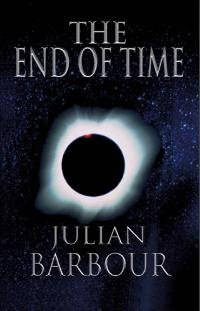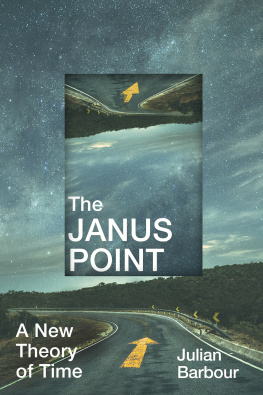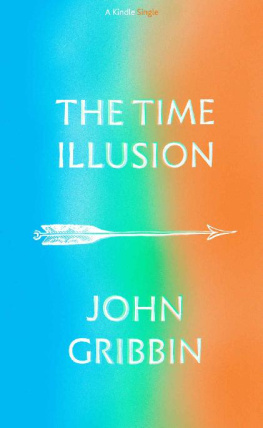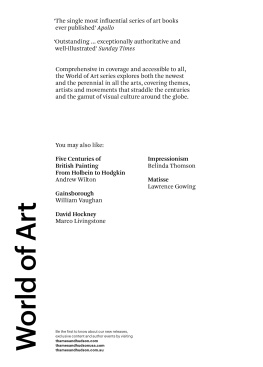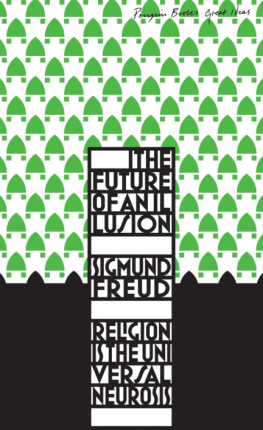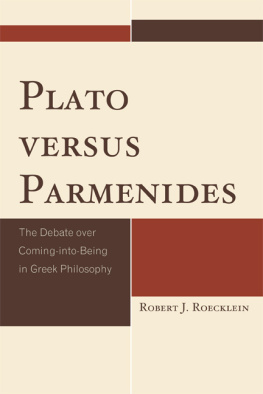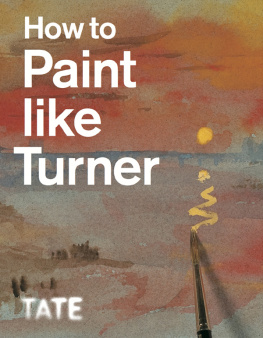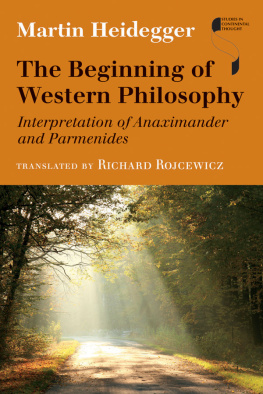Julian Barbour
The End of Time
The Next Revolution in Physics
Two views of the world clashed at the dawn of thought. In the great debate between the earliest Greek philosophers, Heraclitus argued for perpetual change, but Parmenides maintained there was neither time nor motion. Over the ages, few thinkers have taken Parmenides seriously, but I shall argue that Heraclitan flux, depicted nowhere more dramatically than in Turners painting below, may well be nothing but a well-founded illusion. I shall take you to a prospect of the end of time. In fact, you see it in Turners painting, which is static and has not changed since he painted it. It is an illusion of flux. Modern physics is beginning to suggest that all the motions of the whole universe are a similar illusion that in this respect Nature is an even more consummate artist than Turner. This is the story of my book.

Snow Storm Steamboat off a Harbours Mouth Making Signals in Shallow Water, and Going by the Lead. The Author was in this Storm on the Night the Ariel left Harwich (1842).
The 67-year-old Turner claimed that he had made the sailors bind him to the Ariels mast so that he should be forced to experience the full fury of the storm.
We must philosophize about these things differently.
Johannes Kepler
On a beautiful October afternoon in 1963 I travelled to the Bavarian Alps with a student friend, Jrgen. We planned to spend the night in a hut and climb to the peak of the Watzmann at dawn next day. On the train, I read an article about Paul Diracs attempt to unify Einsteins general theory of relativity with quantum theory. A single sentence in it was to transform my life: This result has led me to doubt how fundamental the four-dimensional requirement in physics is. In other words, Dirac was doubting that most wonderful creation of twentieth-century physics: the fusion of space and time into space-time.
I never climbed the Watzmann. When Jrgens alarm rang an hour before dawn, I awoke with a splitting headache. I still remember vividly the brilliant stars of Orion and the other winter constellations, high in the sky before the October dawn. But stars or no stars, I could not face the climb with that headache. Jrgen set off alone, but I took two aspirin and went back to my bunk. Waking an hour or two later, I fell to thinking about Diracs words. Might the notion of space-time have been a mistake? This prompted an even more fundamental question: what is time? Before Jrgen had returned, I was and still am the prisoner of this question.
Richard Feynman once quipped, Time is what happens when nothing else does. My conclusion, reached within a few days, was the exact opposite: time is nothing but change. I spent hours and hours pacing through the Englischer Garten in Munich while persuading myself of this fact. Physics must be recast on a new foundation in which change is the measure of time, not time the measure of change. After a week or two I had become so gripped by the issue of time that I decided to go to Cambridge, where Dirac was the Lucasian Professor, as Newton had once been, to try to explain my ideas to him. I could have saved myself the trouble. Although I had studied mathematics in Cambridge from 1958 to 1961, I had never been to Diracs lectures and did not know he was a man of few words, seldom engaging in general discussions even with his most distinguished colleagues. I did speak to him briefly on the telephone, on which he introduced himself with This is Mr Dirac, but, very reasonably I am sure, he ended the conversation quite quickly.
If the trip to Cambridge failed in that way, it had for me a most fortunate side effect. While over in England, I went back to the village in north Oxfordshire where I had grown up. There I found my younger brother wondering if he could find the money to become a farmer. New College in Oxford had suddenly decided to auction, in separate lots, a farm they owned in the village. The auction was set for 21 November. We had both received some money from my father as a way of avoiding death duties. When it became clear, just twenty-four hours before the auction, that my brother might manage to get together, with loans, enough money to buy the land but not the farmhouse and buildings, I decided on the spur of the moment to bid for them myself and rent them to my brother for a few years until he could make other arrangements. At dawn on the morning of the sale, my father woke me and my mother woke my brother. They had been unable to sleep, lying awake all night worrying about our plans. We must give up the idea. However, our bank manager encouraged us to go ahead. A few hours later and about twenty-eight hours before President Kennedy was assassinated I was the proud owner of College Farm, as it was and still is called. Built at the end of the Commonwealth in 1659 and standing next to a fine medieval church, it is one of the best-preserved yeoman farmhouses in the country.
I have told you this story of my serendipitous purchase because it significantly affected the kind of scientist I became. After I returned to Munich, and my brother started to plough his fields, I decided to give up the Ph.D. in astrophysics I had begun and turn to fundamental physics, above all time. I did a Ph.D. on Einsteins theory of gravitation in Cologne and then started to think about a university position in Britain. But even then there was pressure to publish or perish. If you could not turn out one or two research papers each year (now, crazily, one is expected to produce four or five) and do all the teaching and administrative duties, I was warned, you could not look forward to much of a career. But I might want to spend years thinking about basic issues before publishing anything. As luck would have it, I had learned Russian as a hobby while in Munich and had earned some money by translating Russian scientific journals. Once you get into such work, it goes quite fast, especially if you can dictate it. So I decided to earn my living that way, and work away at the question of time as and when I could. In 1969 my German wife and I moved into College Farm with our two small children, who were soon followed by two more. For twenty-eight years, until I felt the size of my pension fund allowed me to stop, I turned out translations at the rate of two and a half million words a year. I think that together they would fill about twenty metres of library shelves.
It was a great way to bring up a family, but an unconventional way to do physics. For years I never met anyone else at conferences who was not at a university or research institute. Now you do meet a few. James Lovelock, the creator of the Gaia theory of life on Earth, is a great advocate for going independent. I think it worked for me. I greatly valued the feeling that I could do just what I wanted when I wanted. Publication of papers led to fruitful collaboration with other physicists and trips to many parts of the world. I had the luxury of being able to work on topics other physicists felt they could not risk, either because nothing might come of the work or because their reputations would suffer. But they still liked to talk about them, and I made several good friends in this way. And all the while, I did seem to make some progress on the enigma of time. Key ideas came every five or six years, the most radical in 1991. In fact, 35 years on from that failed attempt on the Watzmann, I now believe that time does not exist at all, and that motion itself is pure illusion. What is more, I believe there is quite strong support in physics for this view. I have a vision and I want to tell you about it.

